

Articles
How To Store Farm Eggs
Modified: October 20, 2024
Learn how to store farm fresh eggs properly with our informative articles. Discover the best methods for keeping eggs fresh and safe for consumption.
(Many of the links in this article redirect to a specific reviewed product. Your purchase of these products through affiliate links helps to generate commission for Storables.com, at no extra cost. Learn more)
Introduction
Farm-fresh eggs have always been a staple in many households. Whether you get them straight from your backyard or purchase them from local farmers, these eggs are known for their superior taste and nutritional benefits. However, unlike store-bought eggs that are usually washed, treated, and refrigerated before they reach the shelves, farm eggs require a different approach when it comes to storage.
Ensuring the longevity and freshness of farm eggs is crucial to maximize their flavor and quality. This article will guide you through the process of storing farm eggs properly, whether you’re a backyard chicken enthusiast or a proud supporter of local farms.
Purchasing Fresh Farm Eggs
Before diving into the details of storing farm eggs, it’s important to start with fresh eggs. When purchasing farm eggs, look for vendors who prioritize cleanliness and proper egg-handling practices. This includes collecting eggs daily, keeping the nesting areas clean, and storing them in a cool place.
Cleaning the Eggs
Contrary to popular belief, farm eggs do not need to be washed before storage. Freshly laid eggs have a natural protective coating called bloom that acts as a barrier against bacteria. Washing eggs removes this protective layer and increases the risk of contamination. If the eggs have dirt or feces on them, use a dry cloth or sandpaper to gently remove the debris, being careful not to damage the shell.
Assessing the Quality of Eggs
Before storing the eggs, it’s important to assess their quality. Discard any eggs with cracks, leaks, or unusual odors. Also, check if the egg yolk and white are intact, as eggs with broken yolks or watery whites may indicate spoilage.
Refrigeration vs. Room Temperature Storage
One of the most common debates when it comes to storing farm eggs is whether to keep them in the refrigerator or at room temperature. While refrigeration is the safest option for long-term storage, some people prefer the traditional method of storing eggs at room temperature.
Proper Storage Containers
Regardless of the storage method you choose, it’s important to use the right containers. Avoid using plastic or metal containers for egg storage, as they can absorb odors and affect the taste. Instead, opt for cardboard egg cartons or ceramic egg trays.
Key Takeaways:
- Proper storage of farm eggs is crucial for maintaining freshness and quality. Whether refrigerated or stored at room temperature, following correct techniques and regular checks ensures safe and delicious eggs for culinary use.
- Choosing reputable sources, avoiding unnecessary washing, and proper organization are key to maximizing the flavor and nutritional benefits of farm eggs. With attention to detail and adherence to best practices, enjoy the outstanding taste of fresh farm eggs in everyday cooking.
Purchasing Fresh Farm Eggs
When it comes to purchasing farm eggs, there are a few key factors to consider to ensure you’re getting the freshest and highest quality eggs:
- Find a reputable source: Look for local farmers or farmers’ markets that are known for their quality eggs. Getting eggs directly from the source ensures that they are fresh and handled properly.
- Check for cleanliness: A clean environment is crucial for maintaining the quality and safety of farm eggs. Ensure that the farmers prioritize cleanliness and hygiene in their egg collection and storage processes.
- Ask about their egg-handling practices: Inquire about how often the eggs are collected, whether they are stored properly, and if any measures are taken to minimize bacterial contamination.
- Inspect the eggs: Before purchasing, take a close look at the eggs. They should have clean and intact shells with no visible cracks or dirt. Avoid eggs with unusual odors or discoloration, as these may signal spoilage.
It is also worth noting that the availability of farm eggs may vary depending on the season and the region you are in. Some farmers may have limited supply during certain times of the year, so it’s a good idea to check in advance or establish a regular relationship with a local farm for a consistent supply of fresh eggs.
By putting in a bit of effort to find a reliable source of fresh farm eggs, you can ensure that you are getting the best quality eggs for your culinary creations.
Cleaning the Eggs
Contrary to popular belief, farm eggs do not require extensive washing before storage. In fact, washing farm eggs can actually reduce their shelf life and increase the risk of contamination. Freshly laid eggs have a natural protective coating known as the “bloom” or “cuticle” that acts as a barrier against bacteria.
If the eggs you purchase or collect have visible dirt or feces on them, it’s important to clean them properly without compromising their protective coating. Follow these steps to clean farm eggs effectively:
- Start with dry cleaning: The first step is to dry-clean the eggs to remove any loose dirt or debris. Gently wipe the eggs with a dry cloth or paper towel, being careful not to scrub too hard or damage the shell. This method is sufficient for removing surface dirt and organic matter.
- Avoid using water: Unlike store-bought eggs, farm eggs should not be washed with water. Water can wash away the natural protective coating and make the eggs more susceptible to bacteria. Even if an egg appears dirty, dry cleaning is usually enough to remove the dirt.
- Consider dry sanding: If there are stubborn stains or dried-on dirt that cannot be removed with a dry cloth, you can gently sand the affected area with fine-grit sandpaper. This method helps to remove stuck-on debris without the need for water.
- Use discretion: It’s important to use your discretion when deciding whether or not to clean the eggs. If an egg has excessive dirt or is heavily soiled, it’s best to discard it rather than risking contamination when attempting to clean it. Remember, it’s better to be safe than sorry.
After cleaning the eggs, it’s crucial to handle them with care to prevent any chances of contamination. Avoid touching the eggs with dirty hands or placing them on dirty surfaces. Always use clean and dry containers to store the cleaned eggs.
By following these guidelines, you can ensure that your farm eggs remain clean and safe for consumption while preserving their natural protective coating for maximum freshness and longevity.
Assessing the Quality of Eggs
Before storing farm eggs, it’s important to assess their quality to ensure that you’re storing fresh and healthy eggs. Here are some factors to consider when evaluating the quality of eggs:
- Shell integrity: Inspect the shell of each egg for any cracks, leaks, or damage. A cracked or compromised shell can lead to bacterial contamination and a shorter shelf life. Discard any eggs with visible cracks or leaks as they may be unsafe to consume.
- Odor: Give the eggs a sniff. Fresh eggs should have a neutral smell. If you detect any unusual or foul odors, the eggs may be spoiled, and it’s best to discard them.
- Yolk and white consistency: Carefully crack open an egg and examine the yolk and white. The yolk should be round and centered, without any signs of blood spots or unusual coloration. The white should be clear and slightly thick, rather than watery. Any abnormalities in the yolk or white may indicate spoilage and should be discarded.
- Size and weight: While size doesn’t always determine the quality of an egg, it’s worth noting that larger eggs tend to have more watery whites. However, if an egg feels unusually light for its size, it could indicate dehydration or age, and it’s best to consume it sooner rather than later.
- Floating test: If you’re unsure about the freshness of an egg, you can perform a simple floating test. Fill a bowl with water and gently place the egg in it. Fresh eggs will sink to the bottom and lay flat on their sides. Eggs that slightly tilt or stand upright should be used soon, as they are not as fresh but still safe to consume. However, eggs that float to the top should be discarded, as this indicates that the egg has spoiled or gone bad.
Remember, it’s always better to err on the side of caution when assessing the quality of eggs. If you have any doubts about the freshness or safety of an egg, it’s best to discard it to avoid the risk of illness.
By evaluating these factors, you can ensure that you’re storing only the freshest and highest-quality farm eggs, which will contribute to better taste and overall food safety.
Refrigeration vs. Room Temperature Storage
One of the most common debates when it comes to storing farm eggs is whether to refrigerate them or store them at room temperature. Both methods have their pros and cons, so it’s important to understand the implications of each option:
Refrigeration:
Refrigeration is the most widely recommended method for storing farm eggs, as it helps to slow down bacterial growth and maintain freshness. When eggs are refrigerated, it inhibits the growth of Salmonella and other potentially harmful bacteria. If you choose to refrigerate your eggs, follow these guidelines:
- Keep the eggs in their original carton or transfer them to a clean and odor-free container.
- Place the eggs in the main body of the refrigerator, where the temperature is most consistent.
- Avoid storing eggs in the refrigerator door, as the temperature fluctuates more frequently and can affect their quality.
Room Temperature Storage:
Some people prefer to store farm eggs at room temperature, following the traditional method practiced by our ancestors. If you choose to store your eggs at room temperature, here are some considerations:
- Pick a cool place in your kitchen away from direct sunlight and sources of heat.
- Use an egg tray or basket that allows proper air circulation around the eggs.
- Rotate the eggs regularly, placing the fresh ones at the back and using older eggs first.
However, it’s important to note that room temperature storage poses a higher risk of bacterial contamination and shorter shelf life. Room temperature fluctuations and warm environments can accelerate the growth of bacteria, potentially reducing the egg’s freshness and increasing the risk of foodborne illness.
Ultimately, the choice between refrigeration and room temperature storage depends on your personal preferences and local food safety guidelines. If you’re unsure or want to err on the side of caution, refrigeration is the safer option.
Remember to always use your judgment and assess the conditions of your environment when deciding how to store your farm eggs to ensure optimal freshness and safety.
Read more: How To Store Egg
Proper Storage Containers
Choosing the right storage containers for your farm eggs is essential for maintaining their freshness and protecting them from damage. Here are some recommendations for selecting proper storage containers:
- Egg cartons: The most commonly used container for storing eggs is an egg carton. Opt for cardboard egg cartons with individual compartments for each egg. These cartons provide protection, allow proper air circulation, and help prevent the eggs from rolling and getting damaged.
- Egg trays: Another option is using ceramic or plastic egg trays. These trays are designed to securely hold eggs in place, preventing them from rolling or knocking into each other. Choose trays that are clean, sturdy, and have a smooth surface to avoid any potential damage to the eggs.
- Egg racks: Egg racks or holders made of wire or plastic can also be used to store farm eggs. These racks keep the eggs upright, allowing air to circulate around them and minimizing contact with other objects, reducing the risk of damage.
Regardless of the type of container you choose, keep the following tips in mind:
- Make sure the containers are clean and free from any odors or residues that may affect the taste and quality of the eggs.
- Avoid using plastic or metal containers, as they can absorb odors that can transfer to the eggs. Additionally, metal containers can react with the eggshells and affect their quality.
- Ensure the containers are well-ventilated to allow proper airflow and prevent moisture buildup, which could lead to bacterial growth.
- Label the containers with the date of collection or purchase to track the freshness of the eggs.
Proper storage containers not only protect the eggs but also make it easier to organize and access them when needed. By taking care to choose suitable containers, you can extend the shelf life of your farm eggs and maintain their quality for longer periods.
Store farm eggs in the refrigerator, ideally in the original carton to maintain freshness. Keep them in the main body of the fridge, not in the door where temperatures fluctuate.
Storing Eggs in the Refrigerator
Refrigerating farm eggs is a common and effective method to prolong their freshness and maintain their quality. When stored properly in the refrigerator, farm eggs can stay safe for consumption for a longer period. Follow these steps to store eggs in the refrigerator:
- Use the original carton or a clean container: Keep the eggs in their original carton, as it provides a protective barrier and helps to keep the eggs organized. If you no longer have the original carton, transfer the eggs to a clean and odor-free container.
- Place the eggs on a stable shelf: Find a spot in the refrigerator where the temperature is consistent, preferably on a shelf rather than the refrigerator door. The door is subject to temperature fluctuations, which can affect the quality of the eggs.
- Keep eggs away from strong-smelling foods: Eggs have porous shells that can absorb odors from other foods. To maintain the eggs’ flavor, avoid storing them near strong-smelling food items like onions, garlic, or strong cheeses.
- Do not wash the eggs: Unlike store-bought eggs, there is no need to wash farm eggs before refrigeration. Washing removes the natural protective coating, increasing the risk of contamination. Only clean the eggs if there is visible dirt or debris, and use a dry cloth or sandpaper to gently remove it.
- Avoid temperature fluctuations: Try to minimize temperature fluctuations by keeping the refrigerator door closed as much as possible. Frequent changes in temperature can affect the eggs’ quality and potentially lead to spoilage.
Refrigerated farm eggs can typically remain fresh and safe to consume for up to four to five weeks. However, it’s important to note that the eggs may lose some of their freshness and quality over time. To ensure the best flavor, try to use them within two to three weeks of purchase or collection.
Remember to always check the eggs’ freshness before using them. You can do this by performing a simple float test or checking for any signs of spoilage, such as off odors or unusual appearance.
By following these guidelines, you can effectively store your farm eggs in the refrigerator and enjoy their superior taste and nutritional benefits for an extended period.
Storing Eggs at Room Temperature
While refrigeration is the most common method for storing farm eggs, some people prefer to store them at room temperature following traditional practices. If you choose to store your eggs at room temperature, it’s essential to take certain precautions to ensure their safety and freshness. Here’s how you can store eggs at room temperature:
- Select a cool location: Find a cool and dry spot in your kitchen away from direct sunlight, heat sources, and excessive humidity. Ideally, the temperature should be around 20°C (68°F) or slightly cooler.
- Use a proper container: Use an egg tray or basket specifically designed for holding eggs. These containers provide protection and allow air circulation, preventing the eggs from rolling and cracking.
- Handle eggs with care: Avoid dropping or hitting the eggs, as this can cause tiny cracks that may lead to bacterial contamination. Place the eggs gently in the container to prevent damage.
- Rotate the eggs: To ensure that you use the oldest eggs first, rotate them regularly. Place the freshest eggs at the back of the container and use the oldest ones first.
- Monitor the condition of the eggs: Check the eggs regularly for any signs of spoilage, such as unusual odors, discoloration, or changes in texture. If you notice any issues, discard the affected eggs to prevent the risk of foodborne illness.
It’s crucial to note that storing eggs at room temperature increases the risk of bacterial growth and reduces their shelf life compared to refrigeration. Therefore, it’s essential to follow proper food safety practices to minimize these risks.
If you choose to store eggs at room temperature, it’s recommended to use them within two weeks of purchase or collection to ensure their freshness and quality. Alternatively, you can perform a simple float test before using the eggs to check if they are still fresh. If an egg floats in a bowl of water, it is best to discard it, as it may indicate that the egg is no longer fresh.
Keep in mind that different regions and climates may have varying guidelines for storing eggs at room temperature. Always prioritize food safety and follow local recommendations to minimize the risk of foodborne illness.
By following these guidelines, you can safely store farm eggs at room temperature while enjoying the convenience of easy access and traditional storage techniques.
Labeling and Organizing
Proper labeling and organization are crucial when it comes to storing farm eggs. These practices help you keep track of the freshness and usage of your eggs, ensuring that you use them in a timely manner and avoid any potential issues. Here are some tips for labeling and organizing your eggs:
- Date the eggs: Labeling the eggs with the date of collection or purchase is key to knowing their freshness. Use a permanent marker to write the date on each egg or on the storage container.
- First in, first out: Follow the principle of “first in, first out,” which means using the oldest eggs first. Make sure to arrange the eggs in a way that allows easy access to the ones that were collected or purchased first.
- Create a system: Develop an organizational system that works for you. You can arrange the eggs in rows based on their collection or purchase dates, or use color-coded stickers or labels to differentiate between weeks or months.
- Separate damaged eggs: If you notice any cracked or damaged eggs, remove them from the storage container and use them as soon as possible. Keeping them separate from the rest of the eggs prevents any potential contamination or spoilage from affecting the other eggs.
- Keep the storage area clean: Regularly clean the storage area, container, or tray where you store your eggs. Wipe away any dirt or residue and ensure that the area is free from any potential contaminants.
Labeling and organizing your eggs not only helps in maintaining freshness but also enables you to keep track of their expiration dates and usage. By implementing these practices, you can effectively manage your egg inventory and reduce the chances of spoiled or wasted eggs.
Remember to always prioritize food safety and discard any eggs that show signs of spoilage, even if they are within their expiration date.
By labeling and organizing your farm eggs, you can ensure that you are utilizing them efficiently while maximizing their freshness and quality for your culinary endeavors.
Read more: How To Store Egg Salad
Checking for Freshness
As your farm eggs are stored and their shelf life progresses, it’s important to regularly check for freshness to ensure that you’re using eggs that are still safe to consume. Here are some reliable methods to check the freshness of your eggs:
- Float test: Fill a bowl with water and gently place the egg into the water. If the egg sinks to the bottom and lays flat on its side, it is fresh and safe to consume. If it stands upright on its end or floats to the top, it may be less fresh and should be used or discarded accordingly.
- Sniff test: Give the egg a gentle sniff. Fresh eggs should have a neutral odor. If you detect any off or foul smell, it may indicate spoilage, and the egg should be discarded.
- Yolk and white appearance: Crack the egg open onto a clean plate or bowl. Fresh eggs will have bright, clear yolks that stand tall and round. The whites should be clear and slightly thick, rather than watery. Any abnormalities in color, texture, or odor should be considered signs of spoilage.
It’s important to note that these methods can provide a good indication of freshness but are not foolproof. Some eggs may still be safe to consume even if they don’t pass these tests, while others may spoil earlier than expected despite appearing fresh.
To ensure the highest level of food safety, it’s recommended to consume farm eggs within two to three weeks of purchase or collection, regardless of the freshness tests. Additionally, always use your discretion when determining the freshness of an egg, and when in doubt, it’s best to err on the side of caution and discard any eggs that raise concerns.
By regularly checking for freshness, you can confidently use your stored farm eggs in various recipes and enjoy their delicious flavor while minimizing the risk of consuming spoiled eggs.
Using Stored Eggs
When it comes to using stored farm eggs, there are a few considerations to keep in mind to ensure their optimal flavor and safety. Here are some tips for using your stored eggs:
- Cooking or baking: Stored eggs can be used in a variety of cooking and baking recipes. Whether you’re making scrambled eggs, omelets, cakes, or cookies, stored eggs can be incorporated just like fresh eggs. However, it’s important to note that as eggs age, their moisture content decreases slightly, which can affect the overall texture in some recipes.
- Egg freshness: Prioritize using the oldest eggs first, applying the “first in, first out” principle. As the eggs age, you may notice slight changes in their appearance, but as long as they pass the freshness tests mentioned earlier, they are safe to consume.
- Adapting recipes: In some culinary applications, such as meringues or recipes that heavily rely on the structure and volume of eggs, it may be best to use fresher eggs for optimal results. If a recipe specifically calls for fresh eggs, consider using them to achieve the desired outcome.
- Quantities and substitutions: Keep in mind that the size and weight of stored farm eggs may vary slightly. If a recipe specifies a certain size of eggs, try to match it as closely as possible. Additionally, stored eggs can usually be substituted for fresh eggs in equal quantities.
- Egg safety: Always practice proper food handling and cooking techniques to ensure the safety of your stored eggs. Properly cook eggs until the yolks and whites are fully set to reduce the risk of foodborne illnesses.
Remember to adjust your expectations slightly when using stored eggs, as they may have a slightly different texture or appearance compared to fresh eggs. However, when stored and handled correctly, farm eggs can provide exceptional flavor and quality even after a period of time.
If you have any concerns about the freshness or safety of your stored eggs, perform a freshness test or discard any eggs that show signs of spoilage.
By following these guidelines, you can confidently use your stored farm eggs in various culinary creations and enjoy their delicious taste and nutritional benefits.
Conclusion
Storing farm eggs properly is essential to ensure their freshness, quality, and safety. Whether you choose to refrigerate or store them at room temperature, following the correct techniques and guidelines will help you make the most of your farm eggs.
When purchasing farm eggs, choose a reputable source that prioritizes cleanliness and proper egg-handling practices. Avoid unnecessary washing of the eggs, as it can remove their natural protective coating. Instead, dry-clean or gently sand any visible dirt or debris from the shells.
Refrigeration is the most recommended method for long-term egg storage. Use the original cartons or clean containers, and place them on stable refrigerator shelves away from temperature fluctuations. For those who prefer room temperature storage, ensure a cool location and use proper containers to allow air circulation.
Proper labeling and organization are crucial to keep track of egg freshness using the “first in, first out” principle. Regularly check for signs of spoilage such as odors, appearance, and freshness tests to ensure the eggs are still safe to consume.
When using stored eggs, you can confidently incorporate them into various recipes with slight adjustments, keeping in mind the potential differences in texture and moisture content. Always practice proper food handling and cooking techniques to ensure the safety of your eggs.
In conclusion, storing farm eggs correctly involves attention to detail and understanding of the best practices. By following these guidelines, you can maximize the freshness, flavor, and nutritional benefits of your farm eggs, allowing you to enjoy their outstanding taste in your everyday cooking.
Frequently Asked Questions about How To Store Farm Eggs
Was this page helpful?
At Storables.com, we guarantee accurate and reliable information. Our content, validated by Expert Board Contributors, is crafted following stringent Editorial Policies. We're committed to providing you with well-researched, expert-backed insights for all your informational needs.
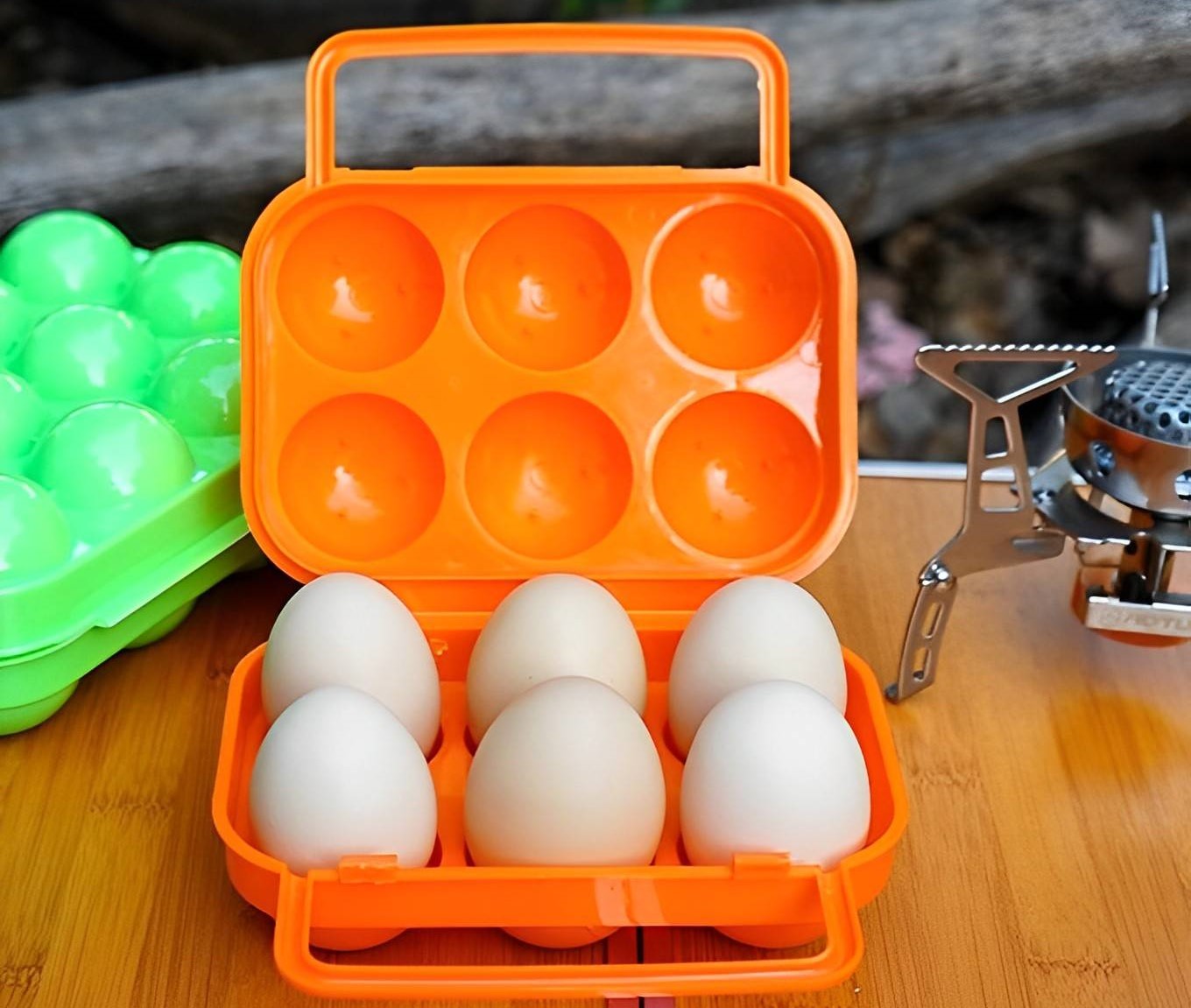

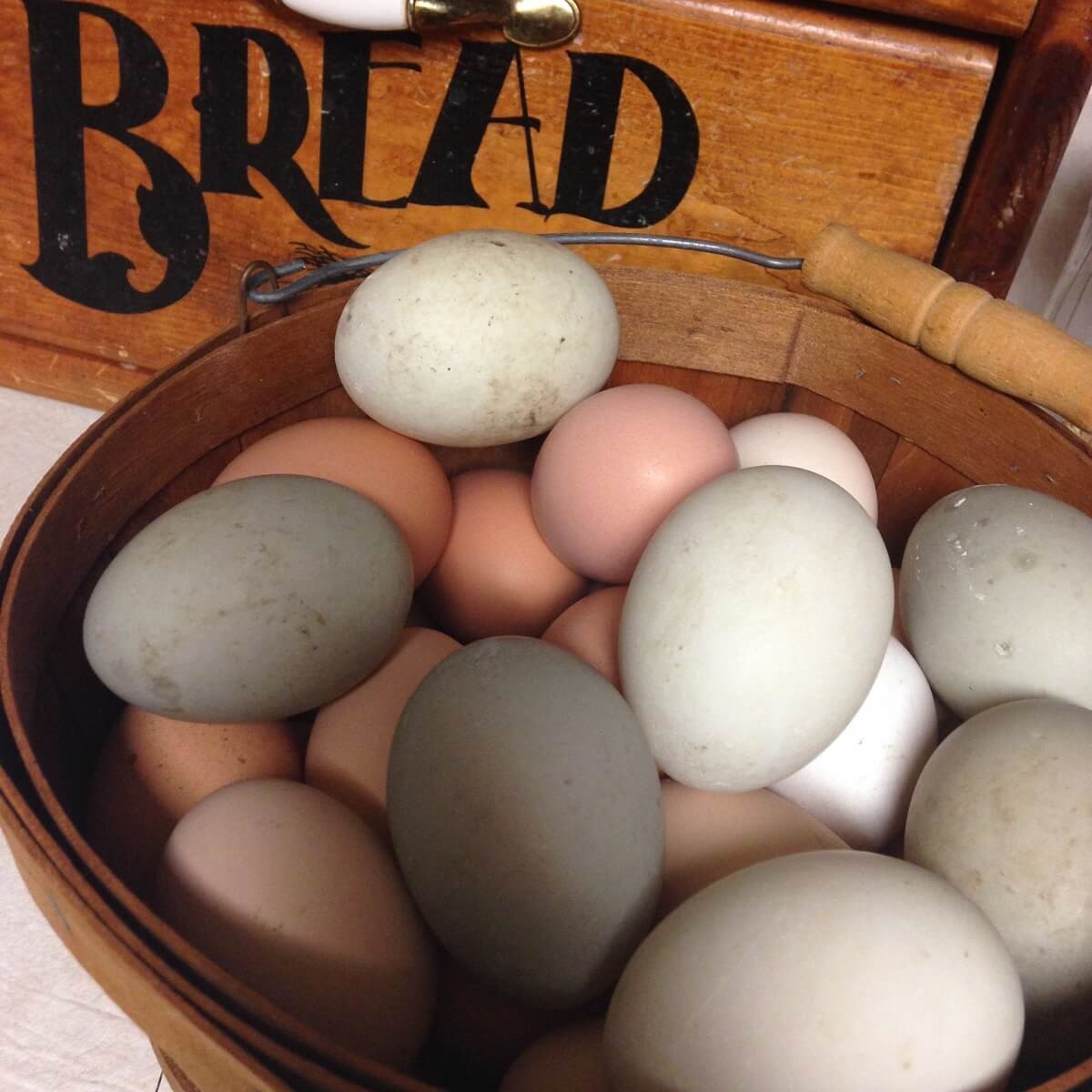



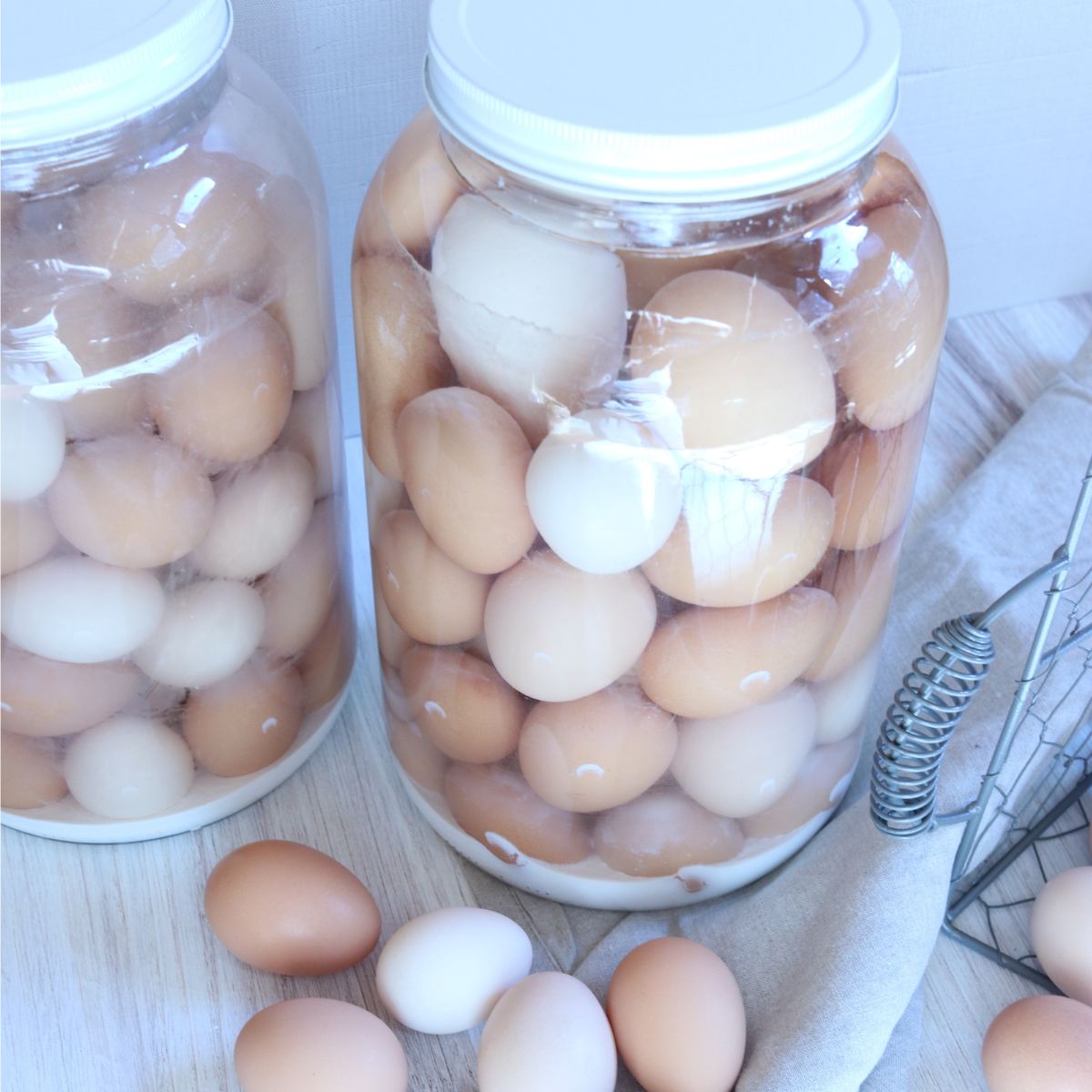

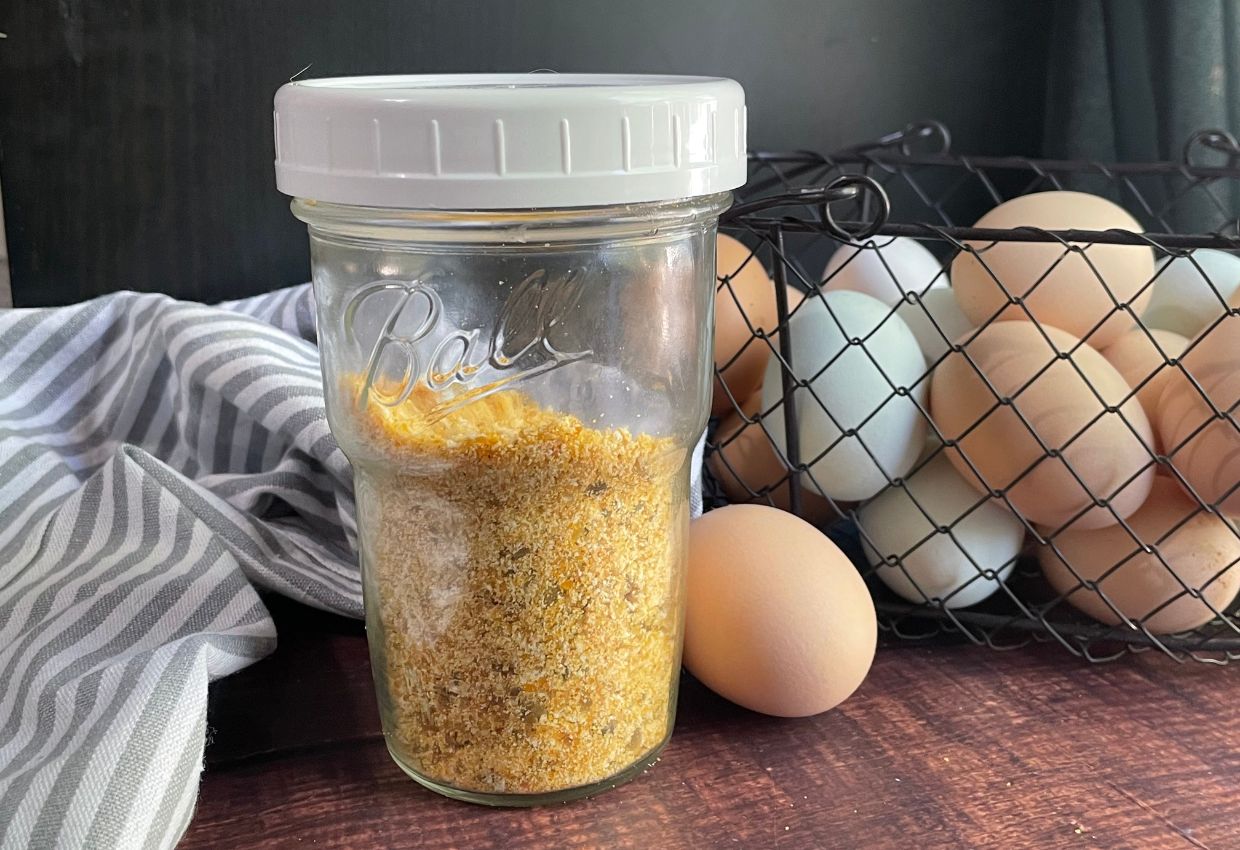

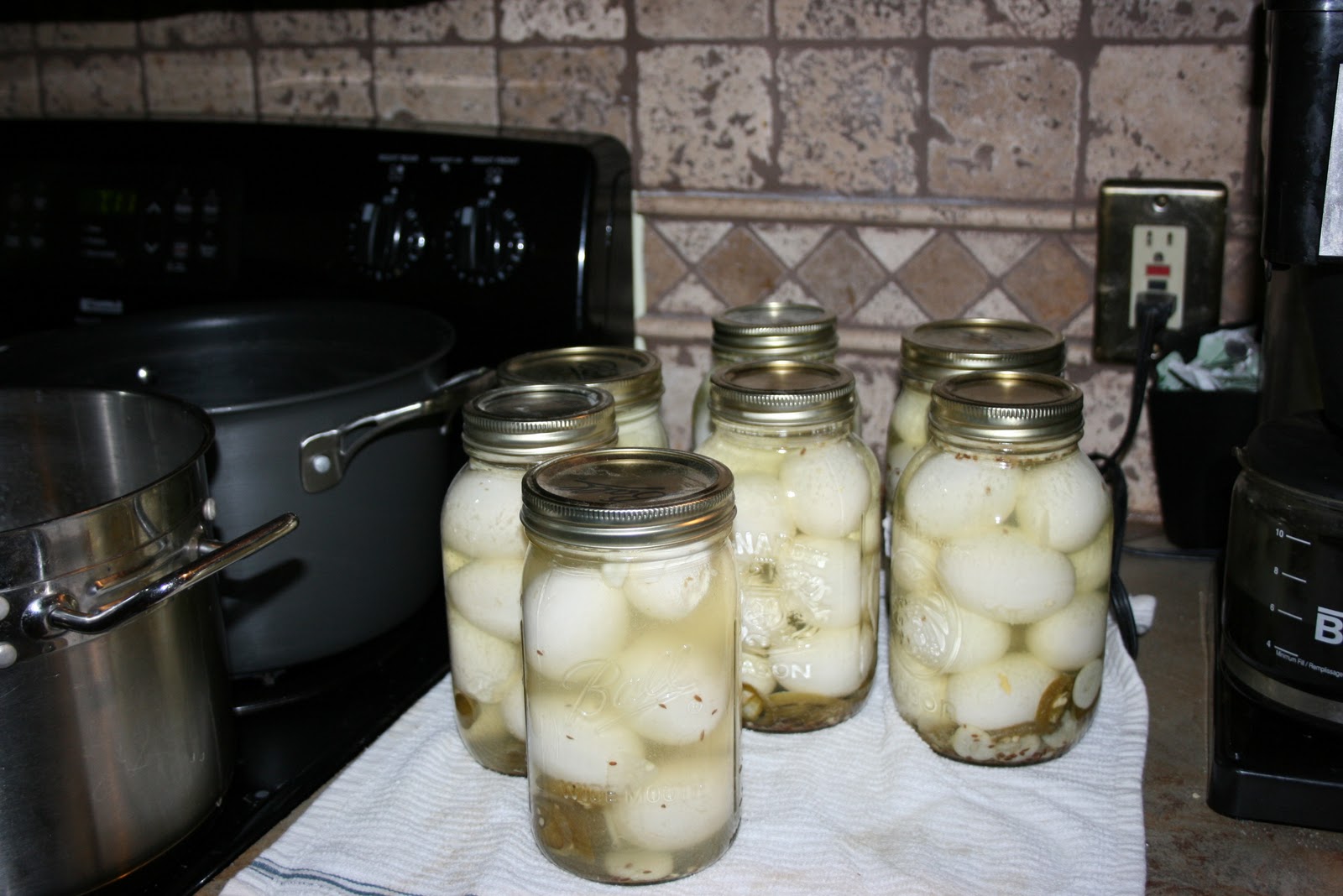

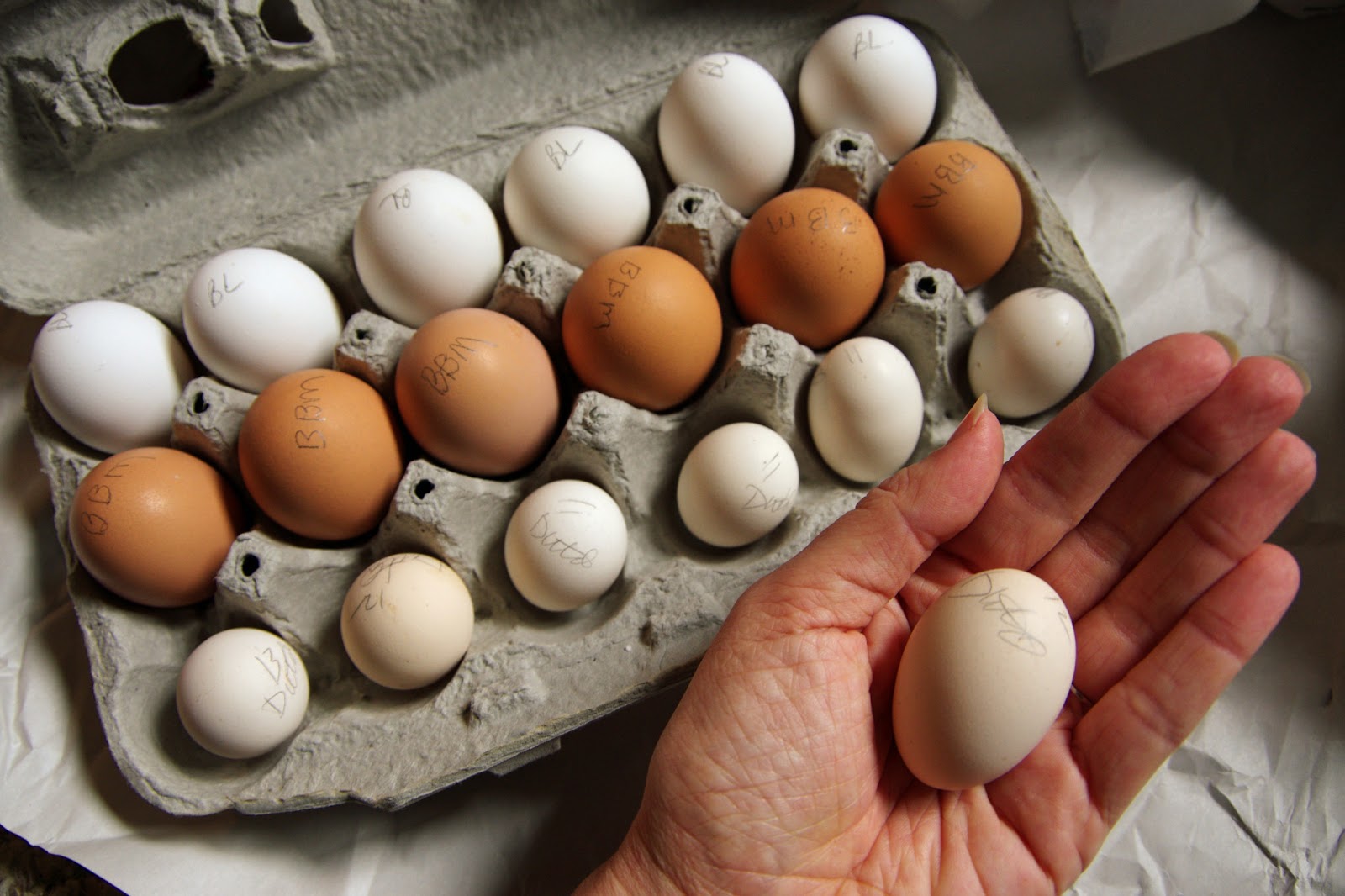

0 thoughts on “How To Store Farm Eggs”